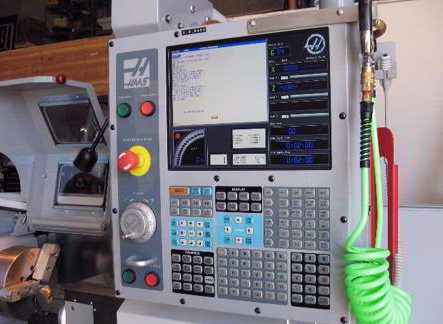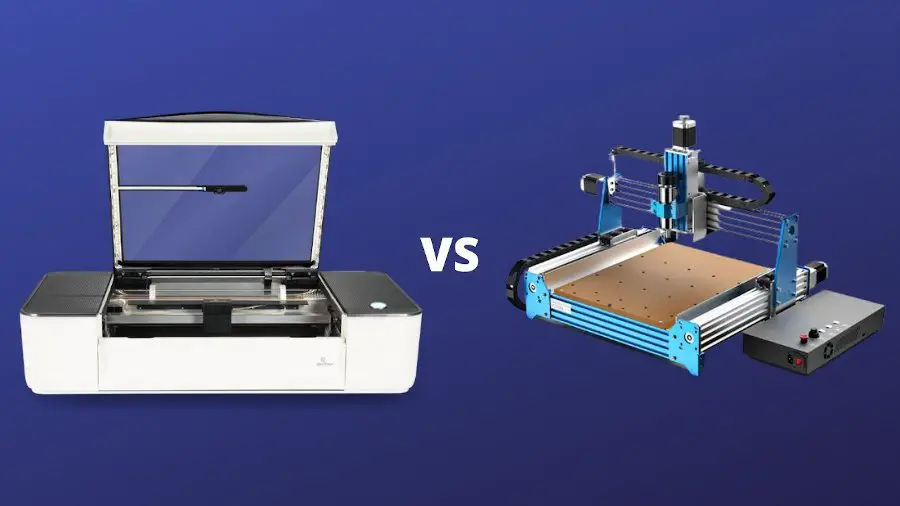Table of Contents
CNC machining is a method of creating intricate parts and components with computer-controlled machines. With its increasing popularity, many people are now interested in learning the skill. However, finding the right place to learn CNC machining can be a daunting task.
Fortunately, there are a variety of options available for those who want to learn CNC machining. Whether you prefer online courses, community colleges, or specialized training centers, there is a program out there that can help you develop the skills you need to succeed in this field. In this article, we will explore some of the best options for learning CNC machining and help you find the right path to achieve your goals.
There are various online and offline resources to learn CNC machining. You can start by enrolling in a technical school or community college that offers courses in CNC machining. There are also online tutorials, videos, and forums available that can help you learn the basics of CNC machining. Some popular online resources include Udemy, Coursera, and Lynda. Additionally, you can learn from experienced machinists or attend workshops and seminars to gain practical knowledge.
Where to Learn CNC Machining? A Comprehensive Guide
1. Online Courses
Learning CNC machining online is a popular option for many people due to its convenience and flexibility. You can learn at your own pace and from anywhere in the world. There are many online courses available that can teach you the basics of CNC machining or help you improve your skills. These courses often include video lectures, interactive quizzes, and assignments to practice what you’ve learned.
Some of the best online courses for CNC machining include:
- Lynda.com
- CNC Academy
- Udemy
- CNC Cookbook
These courses cover topics such as CNC programming, tooling, setup, and operation. They are suitable for beginners as well as experienced machinists who want to improve their skills.
2. Community Colleges and Trade Schools
Many community colleges and trade schools offer CNC machining courses that can provide you with hands-on experience using real machines. These courses typically cover the same topics as online courses, but also provide the opportunity to work with other students and instructors in a classroom setting.
Some of the benefits of attending a community college or trade school include:
- Access to experienced instructors
- Networking opportunities
- Access to real machines
- Hands-on experience
- Opportunities for internships and apprenticeships
3. Technical Schools
Technical schools offer more advanced CNC machining courses that can prepare you for a career in the industry. These programs typically last between one and two years and provide a comprehensive education in CNC machining.
Some of the benefits of attending a technical school include:
- More in-depth education
- Access to advanced machines
- Opportunities for internships and apprenticeships
- Networking opportunities
- Preparation for a career in the industry
4. Apprenticeships
Apprenticeships are a great way to learn CNC machining while getting paid. Many companies offer apprenticeships for aspiring machinists, providing on-the-job training and mentorship.
Some of the benefits of apprenticeships include:
- Hands-on experience
- Mentorship from experienced machinists
- Paid training
- Opportunities for full-time employment
5. On-the-Job Training
If you are already working in a machine shop, you may be able to receive on-the-job training in CNC machining. This can be a great way to learn at your own pace while getting paid.
Some of the benefits of on-the-job training include:
- Hands-on experience
- Paid training
- Opportunities for advancement within the company
- Networking opportunities
6. Trade Shows and Conferences
Trade shows and conferences are a great way to learn about new technologies, techniques, and trends in the CNC machining industry. Attending these events can also provide opportunities to network with other machinists and industry professionals.
Some of the benefits of attending trade shows and conferences include:
- Access to new technologies and techniques
- Networking opportunities
- Opportunities to learn from industry experts
- Exposure to new products and services
7. Books and Manuals
There are many books and manuals available that can teach you the basics of CNC machining or provide more advanced information on specific topics. These resources can be a great way to learn on your own time and at your own pace.
Some of the best books and manuals for CNC machining include:
- CNC Control Setup for Milling and Turning
- CNC Machining Handbook: Building, Programming, and Implementation
- CNC Programming Handbook: A Comprehensive Guide to Practical CNC Programming
- CNC Trade Secrets: A Guide to CNC Machine Shop Practices
8. YouTube Videos
YouTube is a great resource for learning about CNC machining. There are many channels dedicated to CNC machining that offer tutorials, tips, and tricks for beginners and experienced machinists alike.
Some of the best YouTube channels for CNC machining include:
- Titus Cnc
- NYC CNC
- John Saunders
- Haas Automation
9. Manufacturers’ Training Programs
Many CNC machine manufacturers offer training programs for their machines. These programs can provide hands-on experience with the specific machines you will be working with and teach you how to use them effectively.
Some of the benefits of attending a manufacturers’ training program include:
- Hands-on experience with specific machines
- Access to experienced instructors
- Networking opportunities
- Opportunities to learn about new technologies and techniques
10. Online Communities
Online communities can be a great resource for learning about CNC machining. There are many forums and social media groups dedicated to CNC machining where you can ask questions, share tips, and connect with other machinists.
Some of the benefits of joining online communities include:
- Access to a community of experienced machinists
- The ability to ask questions and receive feedback
- Opportunities to share tips and tricks
- Networking opportunities
In conclusion, there are many options available for learning CNC machining. Whether you prefer online courses, classroom settings, on-the-job training, or self-study, there is a method that will work for you. With the right education and training, you can become a skilled machinist and build a successful career in the industry.
Frequently Asked Questions
Where can I learn CNC machining?
CNC machining is a specialized skill that requires proper training and education. Fortunately, there are many options available for those who want to learn CNC machining. One of the best places to start is at a community college or technical school. These institutions offer courses and programs specifically designed to teach CNC machining skills.
Another option is to look for apprenticeships or on-the-job training programs. Many companies offer these opportunities to individuals who are interested in learning CNC machining. This can be a great way to gain hands-on experience and learn from experienced professionals in the field.
Are there any online courses for learning CNC machining?
Yes, there are many online courses available for learning CNC machining. These courses are typically self-paced and allow students to learn at their own pace. Some popular online platforms for CNC machining courses include Udemy, Coursera, and Skillshare.
It is important to note that while online courses can be a great way to learn CNC machining, they may not provide the same level of hands-on experience as in-person courses or apprenticeships. It is recommended to supplement online learning with practical experience whenever possible.
What qualifications do I need to learn CNC machining?
There are no specific qualifications required to learn CNC machining, but a strong foundation in mathematics and computer skills can be beneficial. Many community colleges and technical schools require a high school diploma or equivalent for enrollment in their CNC machining programs.
Additionally, having a keen eye for detail and the ability to work with precision are important qualities for success in CNC machining. Good communication skills and the ability to work well in a team environment are also valuable qualities for CNC machinists.
How long does it take to learn CNC machining?
The length of time it takes to learn CNC machining can vary depending on the individual’s prior experience and the specific program or course they are enrolled in. Some programs may take as little as six months to complete, while others may take two years or more.
It is important to note that while completing a program or course can provide a strong foundation in CNC machining, it may take years of practical experience to become a highly skilled CNC machinist. Continual learning and professional development are essential for success in this field.
Can I learn CNC machining on my own?
While it is possible to learn CNC machining on your own, it can be challenging without proper guidance and resources. Online courses and tutorials can provide a good starting point, but hands-on experience and mentorship are essential for mastering the skills required for CNC machining.
If you are interested in learning CNC machining on your own, it is recommended to start by researching and familiarizing yourself with the fundamentals of the field. Practice with a CNC machine and software as much as possible, and seek out opportunities for feedback and guidance from experienced professionals.
In conclusion, learning CNC machining can open up a world of opportunities for individuals interested in pursuing a career in manufacturing or engineering. There are several options available for those looking to learn the skills required to operate CNC machines, from online courses to vocational schools and community colleges.
Online courses offer a flexible and convenient way to learn CNC machining from the comfort of your own home. With a wide range of courses available, individuals can choose the level of learning that suits their needs and pace.
Vocational schools and community colleges, on the other hand, provide hands-on training and practical experience. These institutions offer comprehensive programs that cover all aspects of CNC machining, including programming, setup, and operation.
No matter which option you choose, learning CNC machining can be a challenging yet rewarding experience. With the right training and dedication, individuals can acquire the skills needed to succeed in this exciting field. So, if you’re interested in pursuing a career in manufacturing or engineering, consider exploring the various options available for learning CNC machining.
Request a quote today!
[contact-form-7 id="1578" title="Contact form"]
Please compress the file into a ZIP or RAR file before uploading. Alternatively, send through your RFQ by email.
enquires@unitymanufacture.com





